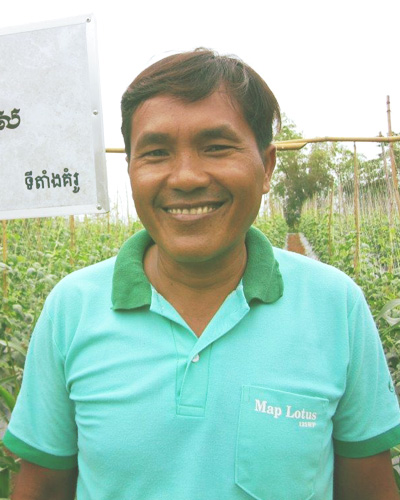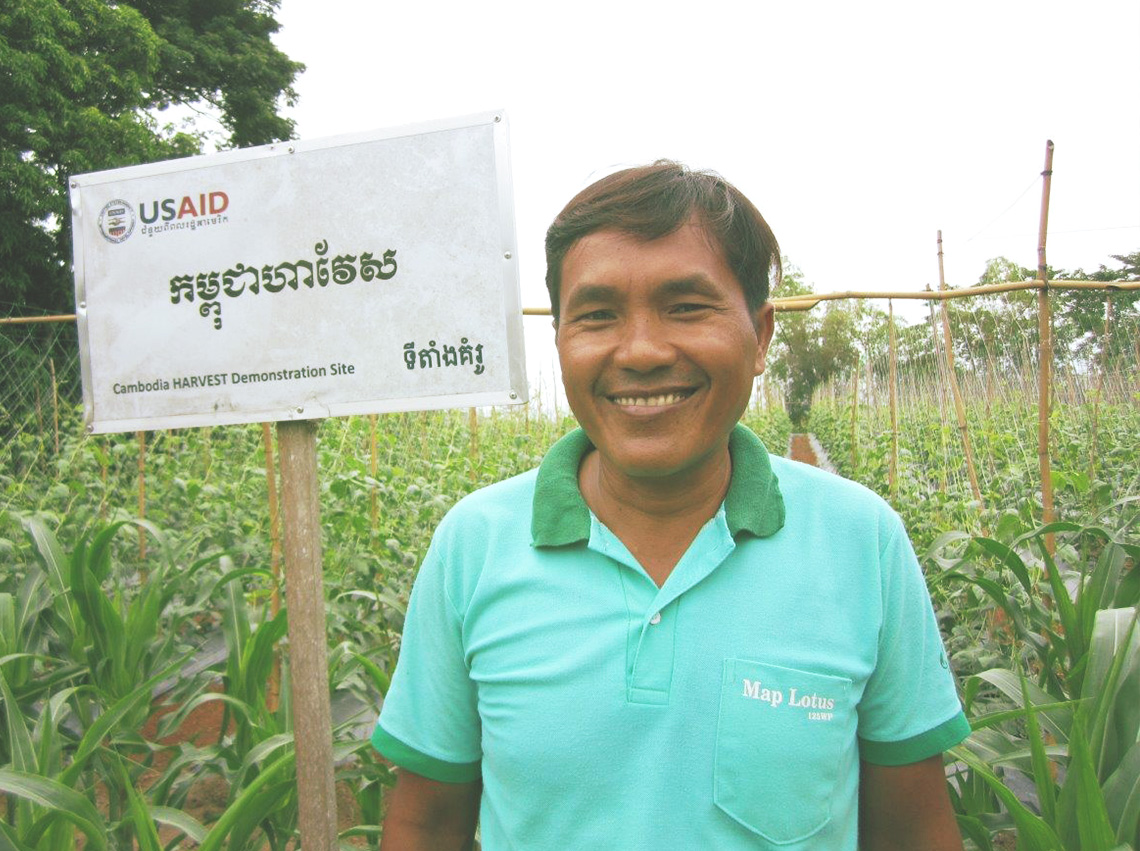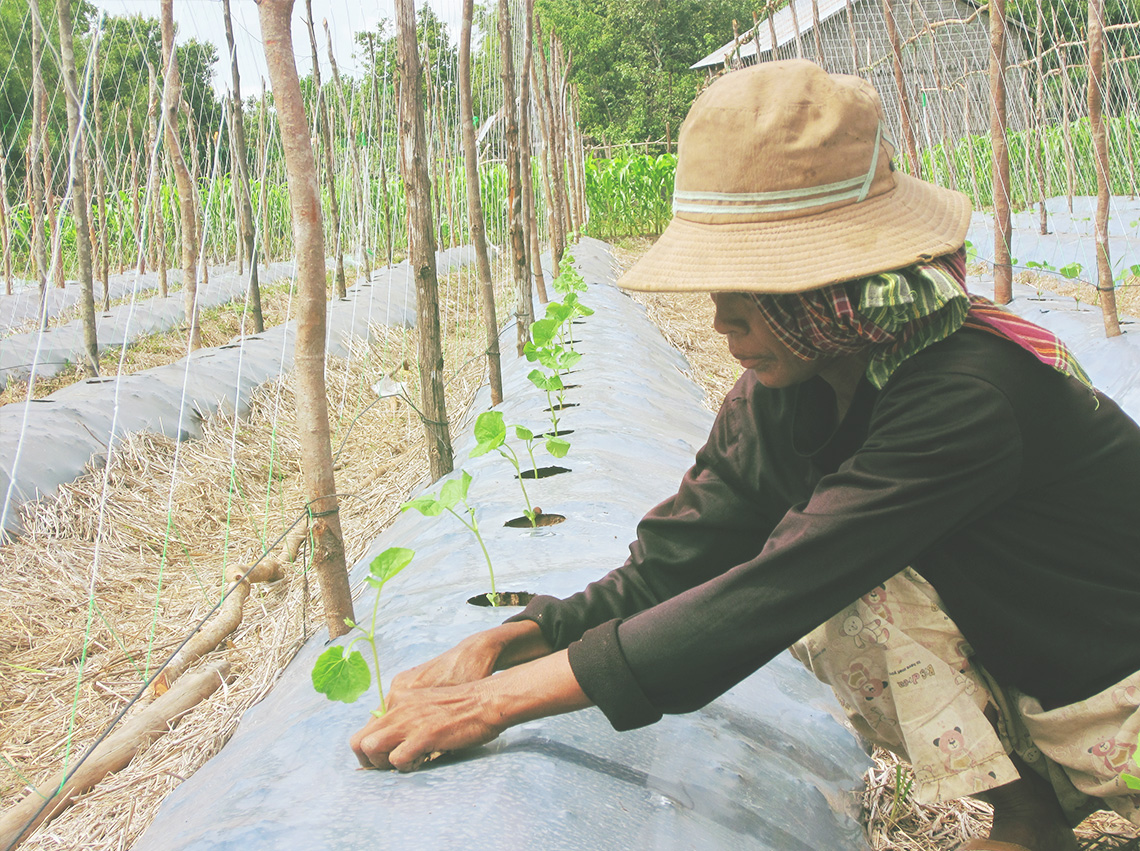Chieng’s story:
How Fighting Floods Can Double Profits
Cambodia

Name
Chieng Sophat, 42
Location
Battambang province, Cambodia
Farm Type
Cucumbers and beans
Chieng Sophat, a 42 year-old farmer from the Battambang province in Cambodia, grows cucumbers and yardlong beans on a plot of 1,000 square meters. He sells most of his produce on the local market to support his family of five.
Like many Cambodian vegetable farmers, Chieng faces a host of climactic problems.
I’ve been farming since the 1980s, and I’ve always had trouble making money. Flooding is a serious problem that can wipe out entire crop cycles, and it’s one that will only get worse as the effects of global climate change intensify.
A recent study has found that Cambodia will see increased temperatures of 0.3-0.8°C and 13-35 per cent more rainfall by 2015.
The programme Cambodia HARVEST has introduced improved techniques and technologies to increase farmer yields and incomes. The programme is based on an intensive extension methodology in which technicians visit their client farmers every week to provide targeted, hands-on technical assistance. These interventions have helped beneficiary households improve their yields by 198 per cent, resulting in income gains of 218 per cent.
Two technologies that have helped Chieng are raised planting beds and plastic mulch. Raised planting beds have enabled Chieng’s crops to develop stronger and larger root systems, in addition to helping prevent soil erosion. Plastic mulch – thin sheets of material that cover raised beds used in combination with drip irrigation – retains soil moisture during the dry season and contributes to improved water management practices. In the rainy season, plastic mulch repels heavy rains and keeps beds intact during floods.
“I’m happy with these new methods,” Chieng said. He has doubled his yields, using the extra income to pay for his children’s school and household improvements.
Chieng’s calls to action:
We need to create solutions with irrigation. The water from the Mekong River can be better managed to store and distribute water to areas with water scarcity.
We need to promote a free market system where there are more buyers for farmers to sell their agricultural products to – and for good prices. In addition, put some limits on vegetable imports from neighbouring countries to encourage domestic farming.
We need to improve the education system so that farmers can make better decisions and move out of poverty. Unfortunately, many Cambodian farmers are very poorly educated.






